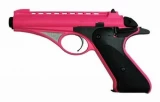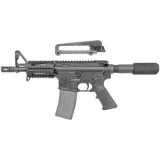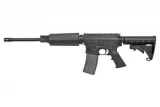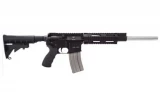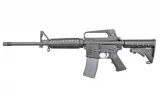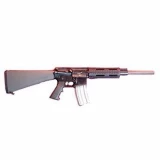Olympic Arms
Olympic Arms, Inc. was founded by Robert C. Schuetz and began as Schuetzen Gun Works (SGW) in 1956, manufacturing <a title="Gun barrel" href="https://en.wikipedia.org/wiki/Gun_barrel">barrels</a> in <a title="Colorado Springs, Colorado" href="https://en.wikipedia.org/wiki/Colorado_Springs,_Colorado">Colorado Springs, Colorado</a>. Prior to that Mr. Schuetz had been partnered in business with well-known gunsmith <a title="P.O. Ackley" href="https://en.wikipedia.org/wiki/P.O._Ackley">P.O. Ackley</a>. In 1975 the company moved to <a title="Olympia, Washington" href="https://en.wikipedia.org/wiki/Olympia,_Washington">Olympia, Washington</a>, and while its business in rifle barrels and barrel blanks thrived, it also began manufacturing complete custom bolt-action rifles. In 1982, Schuetzen Gun Works began to manufacture AR-15/M16 rifles and components under the trade name of Olympic Arms, Inc, while custom bolt-action rifles continued to be produced under the SGW brand.<sup id="cite_ref-Shideler2010_1-0" class="reference"><a href="https://en.wikipedia.org/wiki/Olympic_Arms#cite_note-Shideler2010-1">[1]</a></sup> Olympic was the first to introduce features now seen as commonplace on AR-15 rifles. It was one of the first companies to produce free floating aluminum hand guards, pistol caliber conversions, and AR-15-based pistols. Olympic manufactured many AR-15s in calibers other than the standard 5.56×45mm. Olympic was the first in the industry to offer AR-15-style firearms in <a title="9×19mm Parabellum" href="https://en.wikipedia.org/wiki/9%C3%9719mm_Parabellum">9×19mm</a> and <a title=".45 ACP" href="https://en.wikipedia.org/wiki/.45_ACP">.45 ACP</a>, <a title="10mm Auto" href="https://en.wikipedia.org/wiki/10mm_Auto">10mm Auto</a>, <a title="7.62×39mm" href="https://en.wikipedia.org/wiki/7.62%C3%9739mm">7.62×39mm</a>, and the Winchester Super Short Magnum cartridges.<sup id="cite_ref-Shideler2010_1-1" class="reference"></sup> In late 1987, the company purchased Phoenix, Arizona-based M-S Safari Arms, adding the <a title="M1911 pistol" href="https://en.wikipedia.org/wiki/M1911_pistol">M1911 pistol</a> to its lineup under the name Safari Arms. By January 2004, all 1911-style products were manufactured in the Olympic Arms facility in Olympia.<sup id="cite_ref-2" class="reference"></sup> In 2002, Olympic Arms revived the 1955 <a title="Whitney Wolverine" href="https://en.wikipedia.org/wiki/Whitney_Wolverine">Whitney Wolverine</a> pistol for the <a title=".22 Long Rifle" href="https://en.wikipedia.org/wiki/.22_Long_Rifle">.22 Long Rifle</a> cartridge, with a black polymer frame instead of the original Whitney's blue-finished aluminum alloy frame.<sup id="cite_ref-3" class="reference"><a href="https://en.wikipedia.org/wiki/Olympic_Arms#cite_note-3">[3]</a></sup><sup id="cite_ref-4" class="reference"><a href="https://en.wikipedia.org/wiki/Olympic_Arms#cite_note-4">[4]</a></sup><sup id="cite_ref-5" class="reference"><a href="https://en.wikipedia.org/wiki/Olympic_Arms#cite_note-5">[5]</a></sup> In February 2013, Olympic Arms announced that the company would no longer sell its products to New York law enforcement officers or agencies, following the state's passage of an <a title="NY SAFE Act" href="https://en.wikipedia.org/wiki/NY_SAFE_Act">assault weapons ban</a>



